Anne Lister (1791-1840) stands as a formidable figure in early 19th-century England, distinguished not only by her acumen in business but also by her audacious defiance of the social norms of her time. Known as “the first modern lesbian,” Lister’s voluminous diaries provide an unparalleled glimpse into her complex world, chronicling her extensive travels, intellectual pursuits, and unapologetic romantic relationships with women. This comprehensive examination of Lister’s life delves into her entrepreneurial ventures, her navigation of a society that sought to constrain her, and her remarkable ability to live authentically and on her own terms.

Early Life and Education
Anne Lister was born on April 3, 1791, into a well-established family in Halifax, West Yorkshire. Her upbringing was marked by privilege, yet her path was anything but conventional. From a young age, Lister exhibited a precocious intellect and an insatiable curiosity. She received a broad education, studying subjects ranging from classical languages to the sciences, which was quite rare for women of her era.
Childhood and Formative Years
Lister’s early life was shaped by her family’s status and the intellectual environment of her home. Encouraged by her uncle James Lister, she developed a voracious appetite for reading and self-education. Her diaries reveal a young woman deeply engaged with the world around her, contemplating philosophical questions and exploring various branches of knowledge. These early experiences laid the groundwork for her later pursuits and helped shape her unconventional views on life and society.
Education and Intellectual Development
Her formal education took her to the Manor House School in York, where she formed a deep and lasting friendship with Eliza Raine. This relationship was pivotal, marking the beginning of Lister’s understanding and acceptance of her own sexuality. The bond between Lister and Raine, though ultimately tragic, was foundational in shaping her identity and self-perception. The two girls shared a room and a bed, a common practice in those days, but their relationship quickly evolved into a romantic and physical one. This early experience with Raine was both formative and tumultuous, as societal pressures and Raine’s own struggles with mental health eventually led to their separation.
While at Manor House School, Lister was known for her rebellious spirit and her disdain for the conventional education prescribed for girls. She pursued subjects that interested her, including Latin and mathematics, and often clashed with the school’s authorities. This period of her life was marked by a burgeoning self-awareness and a determination to pursue her intellectual interests despite societal constraints.
Intellectual Foundations
Lister’s intellectual development continued beyond her formal schooling. She was a voracious reader and a keen observer of the world around her. Her diaries from this period are filled with reflections on a wide range of subjects, from literature and science to politics and philosophy. Lister’s insatiable curiosity and her commitment to self-education were key components of her identity, setting her apart from many of her contemporaries.
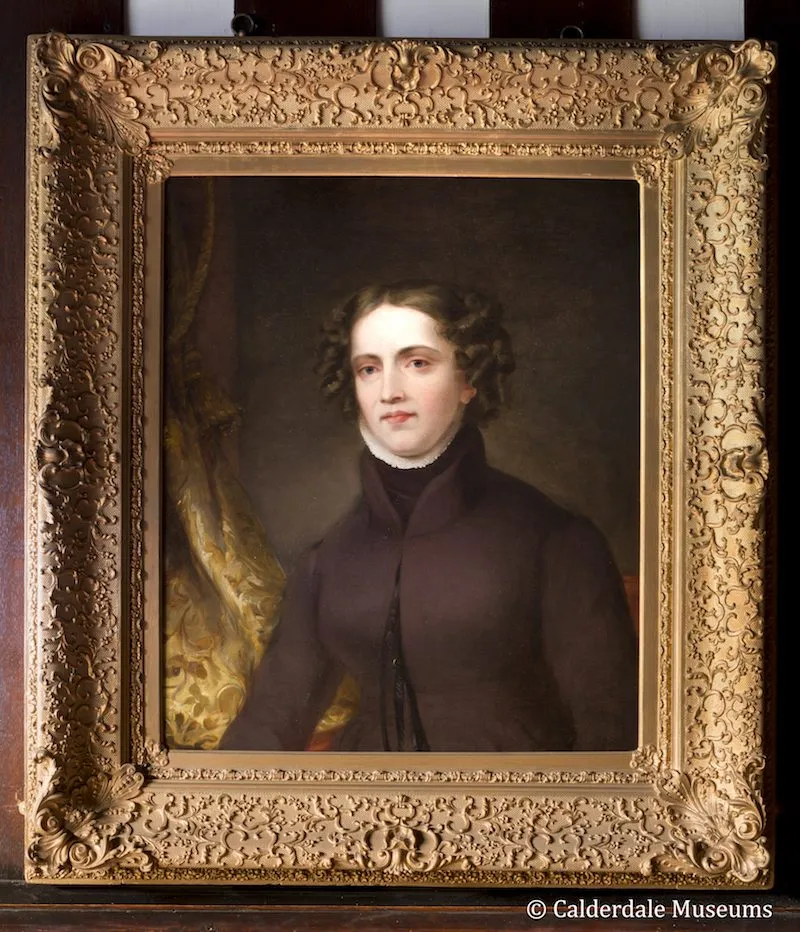
Business Acumen and Entrepreneurial Ventures
Anne Lister’s foray into the world of business was both strategic and transformative. At a time when women’s roles were predominantly confined to domestic spheres, Lister boldly took control of her family’s estate, Shibden Hall, and expanded its economic potential through innovative management and diverse investments.
Shibden Hall and Estate Management
Inheriting Shibden Hall in 1826, Lister immediately set about modernizing the estate. She demonstrated a keen understanding of agricultural practices and land management, implementing improvements that significantly increased the estate’s productivity and profitability. Lister was meticulous in her record-keeping, her diaries providing detailed accounts of her financial dealings and estate operations. She undertook a series of ambitious projects, including the construction of new roads and drainage systems, which not only improved the estate’s efficiency but also its value.
Lister’s approach to estate management was progressive for her time. She was deeply involved in every aspect of Shibden Hall’s operations, from negotiating leases with tenants to overseeing the planting of crops and the maintenance of buildings. Her hands-on approach and her willingness to innovate were key factors in her success as a landowner.
Industrial and Commercial Ventures
Beyond agriculture, Lister’s entrepreneurial spirit extended to various industrial ventures. She invested in coal mining, recognizing the lucrative potential of the coal deposits on her land. Her involvement in the Halifax coal trade was marked by shrewd negotiations and a willingness to engage directly with the male-dominated industry. Lister personally oversaw the opening of new coal pits and the negotiation of contracts, ensuring that her ventures were both profitable and sustainable.
Additionally, Lister ventured into the development of canals and railways, understanding the critical importance of transportation infrastructure in the burgeoning Industrial Revolution. She invested in the Halifax and Huddersfield Railway, recognizing the potential for economic growth and the expansion of markets. Her forward-thinking approach to business and her willingness to take calculated risks set her apart from many of her contemporaries.
Lister’s business acumen was not confined to traditional industries. She also explored new opportunities, such as the development of quarries and the production of building materials. Her diverse investments and her ability to adapt to changing economic conditions were key factors in her financial success.
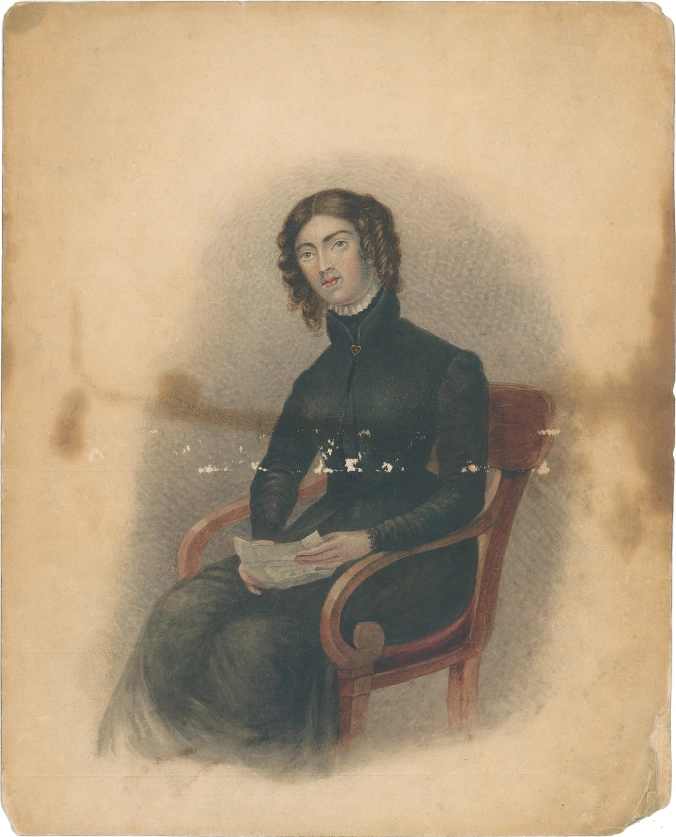
Financial Independence and Wealth Management
Lister’s financial independence was a cornerstone of her autonomy. She deftly managed her investments, balancing risk and reward with a sharp business acumen. Her wealth afforded her not only comfort but also the freedom to travel extensively and pursue her intellectual interests without constraint. Lister’s financial records reveal a sophisticated understanding of investment strategies and a keen eye for opportunities.
Her financial independence also allowed her to support her romantic partners, providing them with financial security and independence. This was particularly important in her relationship with Ann Walker, who was also a wealthy heiress but relied on Lister’s financial acumen for the management of her own estate.
Pioneering Lesbian Identity
Anne Lister’s romantic relationships with women were a central and unapologetic aspect of her life. At a time when homosexuality was criminalized and deeply stigmatized, Lister lived openly as a lesbian, forging intimate and committed partnerships that defied societal conventions.
Early Relationships and Self-Discovery
Lister’s early romantic experiences, particularly with Eliza Raine, were formative in her self-understanding. Her diaries candidly recount the emotional intensity and physical intimacy of these relationships, providing a rare and invaluable perspective on the lives of same-sex couples in the early 19th century. Lister’s relationship with Raine was marked by a deep emotional connection and a passionate physical intimacy that both thrilled and frightened her.
The end of her relationship with Raine, precipitated by societal pressures and Raine’s deteriorating mental health, was a painful but pivotal moment in Lister’s life. It forced her to confront the realities of living as a lesbian in a society that condemned her desires. Despite the heartbreak, Lister emerged from the experience with a clearer sense of her own identity and a determination to pursue her relationships with women openly and honestly.
The Pursuit of Love: Significant Relationships
Among Lister’s many relationships, her bond with Ann Walker stands out as particularly significant. The two women took communion together at Holy Trinity Church in York on Easter Sunday, 1834, in a ceremony Lister considered a marriage. This act of commitment, though not legally recognized, was profoundly meaningful and symbolized their enduring partnership. Lister’s diaries detail the couple’s life together, including their domestic arrangements, their financial planning, and their shared travels.
Lister’s relationship with Walker was not without its challenges. Walker suffered from mental health issues, and Lister’s diaries reveal the complexities of their relationship, including Walker’s dependence on Lister and the strain this placed on both women. Despite these difficulties, their relationship was marked by deep affection and mutual support.
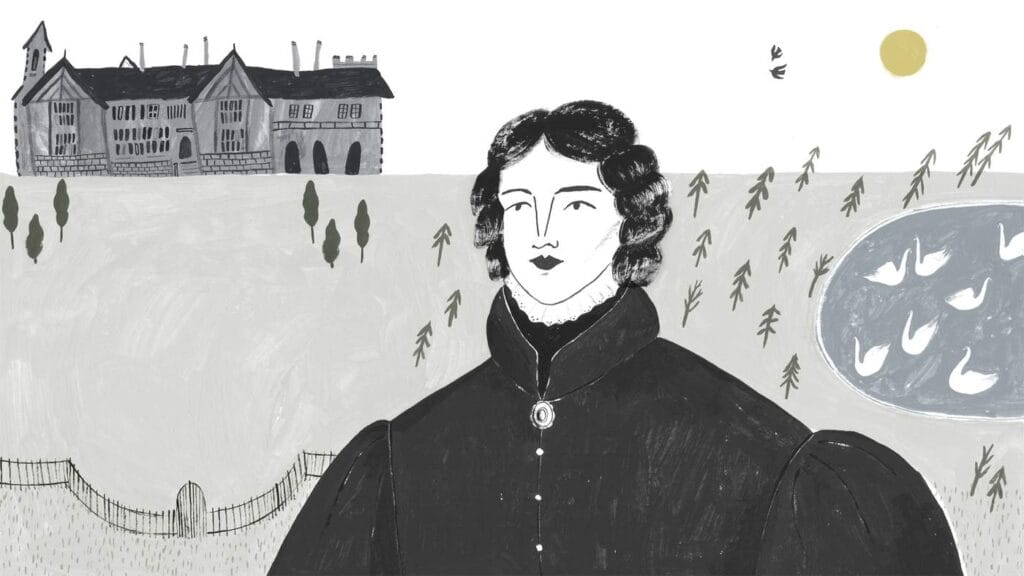
Navigating Societal Repression
Lister’s openness about her sexuality was both courageous and fraught with risk. She employed a private code in her diaries to conceal the most intimate details of her relationships, a testament to the pervasive threat of exposure and the severe consequences that could follow. Despite these challenges, Lister’s diaries are remarkable for their honesty and depth of feeling, capturing her desires, fears, and unwavering resolve to live authentically.
Lister’s diaries also reveal the ways in which she navigated societal repression. She carefully cultivated a public persona that combined traditional markers of respectability with a distinctive personal style. Her preference for black, masculine attire and her assertive demeanor set her apart from other women of her time, challenging conventional gender norms and asserting her individuality.
The Private Code: Protecting and Revealing
One of the most remarkable aspects of Lister’s diaries is her use of a private code to record her most intimate thoughts and experiences. This code, a combination of Greek letters, zodiac symbols, and other esoteric marks, allowed Lister to write candidly about her romantic and sexual relationships without fear of discovery. The code was complex and unique, a testament to Lister’s intellectual prowess and her determination to protect her privacy.
The existence of this code and its eventual deciphering by later scholars has provided invaluable insights into Lister’s life and the lives of other women who shared her orientation. It has also highlighted the lengths to which individuals like Lister had to go to protect themselves from societal judgment and legal repercussions.
Public Persona and Private Realities
While Lister’s private diaries reveal her deepest thoughts and desires, her public persona was carefully crafted to navigate the constraints of her society. She maintained a level of respectability and decorum that allowed her to move relatively freely in social and business circles. Her distinctive style and assertive personality, while unconventional, commanded respect and often deference from those around her.
Lister’s ability to balance her public and private lives was a testament to her resilience and ingenuity. She found ways to assert her identity and pursue her desires while maintaining a level of public respectability that protected her from the worst excesses of societal condemnation.
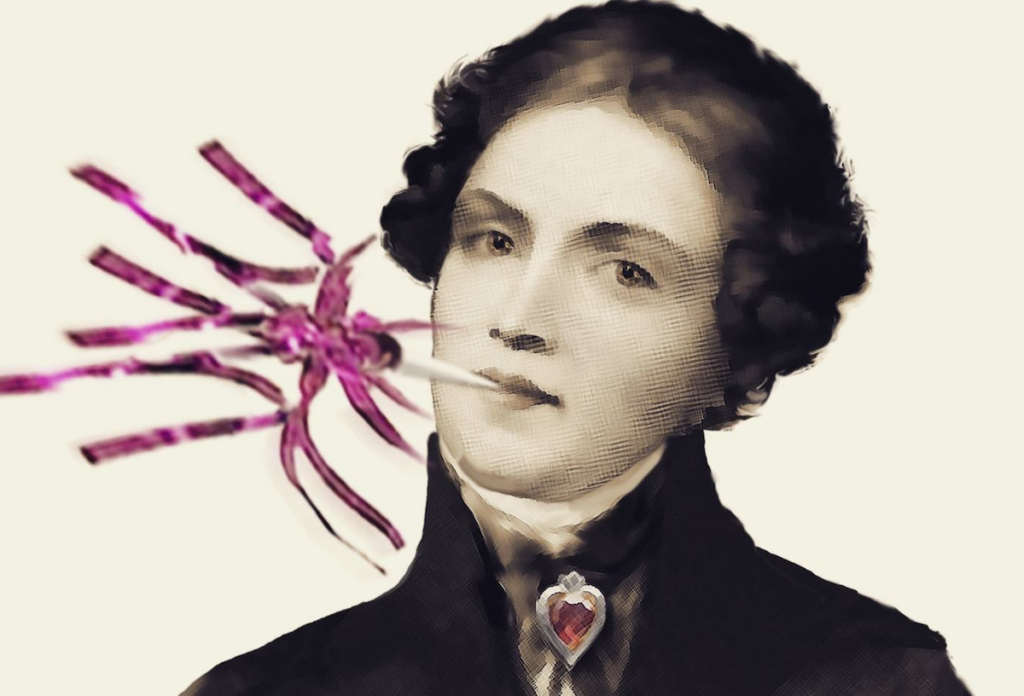
A Woman of Power and Influence
Anne Lister’s influence extended beyond her personal and business life into the broader social and cultural spheres. Her status as a landowner and her active participation in local affairs afforded her a degree of power and respect uncommon for women of her time.
Social Standing and Public Perception
Lister’s management of Shibden Hall and her various business ventures earned her a reputation as a formidable and competent landowner. She navigated the male-dominated world of business with confidence, commanding respect and often deference from her peers. Her distinctive appearance, characterized by her preference for black, masculine attire, further set her apart and underscored her rejection of conventional femininity.
Lister’s social standing was also bolstered by her active participation in local affairs. She attended social events, engaged in political discourse, and maintained a network of influential acquaintances. Her diaries reveal a woman who was deeply engaged with her community and who commanded respect and admiration from those around her.
Political Engagement and Community Involvement
Lister was actively involved in the political and social life of Halifax. She attended local assemblies, engaged in political discourse, and was known for her conservative views. Her diaries reflect her keen interest in the political events of the day, offering insights into her perspectives on issues ranging from local governance to national politics.
Lister’s political engagement was not merely a matter of personal interest; it was also a means of asserting her influence and securing her position within the community. She was known for her strong opinions and her willingness to speak out on matters of public concern. Her diaries reveal a woman who was deeply committed to her community and who sought to shape its future through active participation in its governance.
Intellectual and Cultural Pursuits
Lister’s intellectual curiosity knew no bounds. She was an avid reader and a prolific writer, her diaries encompassing over five million words and covering a vast array of topics. Her travels across Europe and beyond were driven by a desire to engage with different cultures, learn new languages, and expand her knowledge. Lister’s intellectual rigor and cultural sophistication were central to her identity and her legacy.
Lister’s intellectual pursuits were not confined to solitary study. She actively sought out opportunities to engage with other scholars and intellectuals, attending lectures, participating in discussions, and corresponding with like-minded individuals. Her diaries reveal a woman who was deeply engaged with the intellectual currents of her time and who sought to expand her knowledge through active engagement with the world around her.

Cultural Assimilation and Language Acquisition
Lister’s travels were also marked by her efforts to immerse herself in local cultures. She studied languages assiduously, becoming proficient in French, Latin, and Greek, among others. Her linguistic skills facilitated her engagement with diverse cultures and intellectual circles, enhancing her understanding and appreciation of the world’s complexities.
Lister’s commitment to cultural assimilation went beyond language acquisition. She actively sought to understand and appreciate the customs, traditions, and histories of the places she visited. Her diaries are filled with detailed observations on art, architecture, and local customs, reflecting her deep appreciation for cultural diversity and her desire to engage with the world on its own terms.
Travels and Cultural Engagement
Anne Lister’s extensive travels were a testament to her adventurous spirit and her commitment to broadening her horizons. Her journeys, meticulously recorded in her diaries, reveal a woman deeply engaged with the world, constantly seeking new experiences and knowledge.
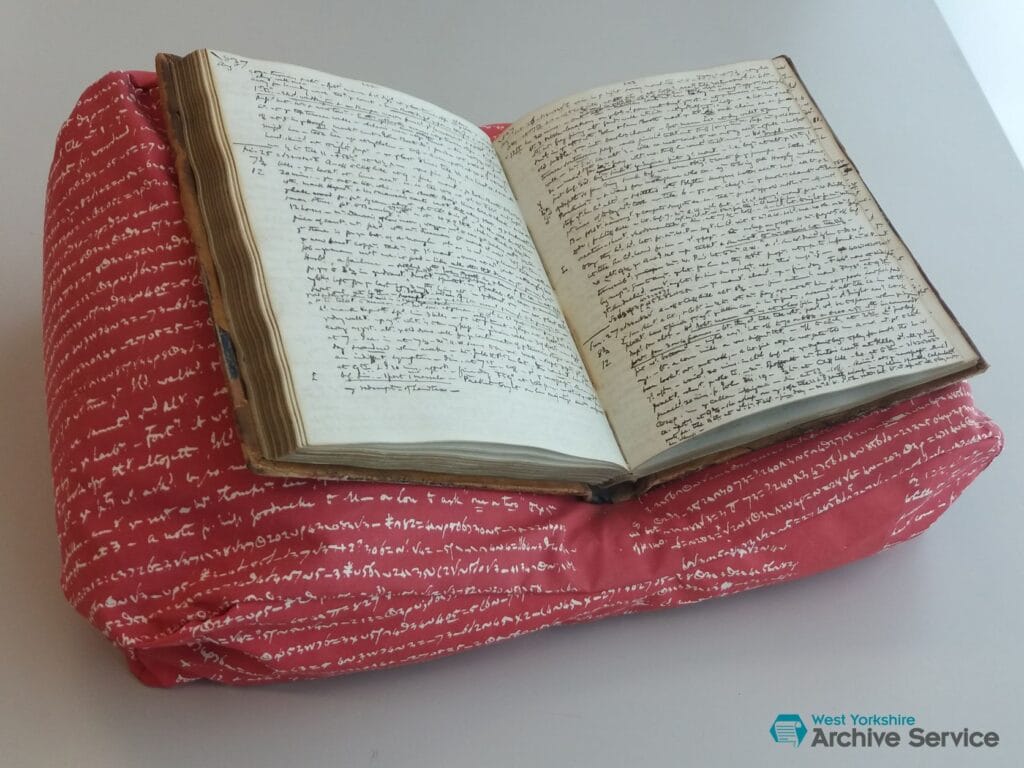
European Sojourns
Lister’s travels took her across the continent, from the grand cities of Paris and Rome to the remote corners of the Pyrenees. Her diaries detail her encounters with various cultures, her observations on art and architecture, and her interactions with prominent figures of the time. These travels were not merely leisure pursuits but were integral to her intellectual and personal development.
The Pyrenean Adventures
One of Lister’s most ambitious undertakings was her ascent of Mont Perdu in the Pyrenees in 1830. This expedition, undertaken with the French naturalist Dr. Philippe Parrot, was groundbreaking. Lister’s successful climb made her one of the first women to scale the mountain, a feat she documented with characteristic precision and enthusiasm.
Lister’s Pyrenean adventures were marked by her keen interest in the natural world. Her diaries from this period are filled with detailed observations on the flora and fauna of the region, as well as her reflections on the physical and emotional challenges of mountaineering. Her success in these endeavors was a testament to her physical strength and her indomitable spirit.
Cultural Assimilation and Language Acquisition
Lister’s travels were also marked by her efforts to immerse herself in local cultures. She studied languages assiduously, becoming proficient in French, Latin, and Greek, among others. Her linguistic skills facilitated her engagement with diverse cultures and intellectual circles, enhancing her understanding and appreciation of the world’s complexities.
Lister’s commitment to cultural assimilation went beyond language acquisition. She actively sought to understand and appreciate the customs, traditions, and histories of the places she visited. Her diaries are filled with detailed observations on art, architecture, and local customs, reflecting her deep appreciation for cultural diversity and her desire to engage with the world on its own terms.
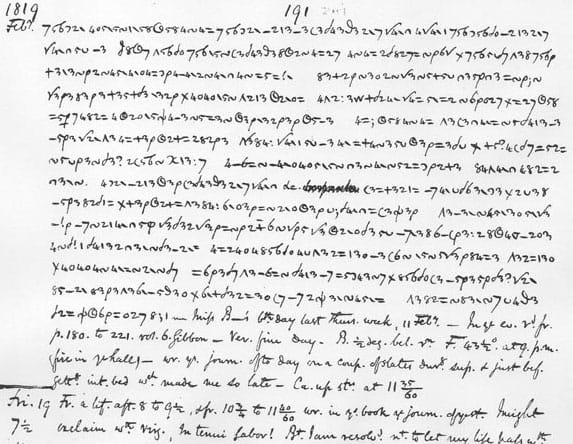
The Importance of Travel in Lister’s Life
Travel played a crucial role in Lister’s life, offering her a means of escape from the constraints of her society and an opportunity to engage with the broader world. Her journeys were driven by a desire for knowledge and a deep curiosity about the world around her. They also provided her with opportunities to explore her identity and her relationships in a more open and accepting environment.
Lister’s travels were not without their challenges. She often faced hostility and suspicion from those who were unaccustomed to seeing a woman traveling alone or with other women. Her distinctive appearance and assertive demeanor sometimes drew negative attention, but Lister remained undeterred. Her diaries reveal a woman who was determined to pursue her passions and live her life on her own terms, regardless of the obstacles she encountered.
Encounters and Experiences
Lister’s diaries are filled with accounts of her encounters with a wide range of people, from local villagers to prominent intellectuals. These interactions provided her with valuable insights into different cultures and ways of life. They also offered her opportunities to forge connections and build relationships with people who shared her interests and values.
Lister’s encounters with other women during her travels were particularly significant. These relationships, often romantic and deeply emotional, provided her with a sense of connection and validation that was difficult to find in her own society. Her diaries reveal the depth of her feelings and the intensity of her relationships, offering a rare and invaluable perspective on the lives of same-sex couples in the early 19th century.


Gentleman Jack : The TV Adaptation Of Anne Lister’s Life
The television adaptation Gentleman Jack, starring Suranne Jones, vividly brings to life the remarkable and unconventional life of Anne Lister, a trailblazing figure in LGBTQ+ history. Suranne Jones’s portrayal of Lister is both nuanced and powerful, encapsulating the essence of a woman who defied the rigid gender norms and societal expectations of the early 19th century. The moniker “Gentleman Jack” was bestowed upon Anne Lister due to her distinctive masculine attire, confident demeanor, and her unyielding refusal to conform to traditional female roles. This nickname underscores her unique position in a society that sought to confine women to subordinate and domestic spheres.
Lister’s audacious lifestyle and her openly lesbian identity were radical for her time, and her achievements extend beyond her personal expression to her pioneering role in same-sex relationships. In 1834, Lister entered into a committed union with Ann Walker, becoming one of the first women in recorded history to marry another woman—a historic and bold assertion of her identity and love. This union, though not legally recognized, was a profound act of defiance and self-determination, challenging the societal norms of her era. Jones’s performance in Gentleman Jack illuminates Lister’s complexity and courage, bringing to the forefront the struggles and triumphs of a woman who navigated and transformed the constraints of her time, establishing herself as a seminal figure in the history of LGBTQ+ rights and personal autonomy.

Conclusion
Anne Lister’s life is a remarkable testament to the power of individuality and the pursuit of authenticity. Her achievements in business, her fearless embrace of her sexuality, and her intellectual and cultural pursuits position her as a pioneering figure in history. Lister’s diaries, with their candid and detailed accounts, offer an invaluable window into her world, illuminating the challenges and triumphs of a woman who dared to live on her own terms. Her legacy endures as a beacon of resilience, intellect, and the enduring quest for self-determination.
Anne Lister’s story is one of remarkable complexity and richness. Her life was marked by a series of bold choices and daring ventures that set her apart from her contemporaries. She navigated the constraints of her society with a unique blend of intelligence, determination, and audacity, forging a path that was uniquely her own.
Legacy and Impact
Lister’s impact extends beyond her own lifetime. Her diaries, with their candid and detailed accounts, have provided historians and scholars with an invaluable resource for understanding the lives of women in the early 19th century. They offer a rare and intimate glimpse into the inner world of a woman who defied societal norms and lived her life with remarkable authenticity and courage.
Lister’s legacy also lies in her role as a pioneering figure in the history of LGBTQ+ identity. Her open and unapologetic embrace of her sexuality, her committed relationships with other women, and her determination to live her life on her own terms make her a powerful symbol of resilience and authenticity. Her story has inspired countless individuals and continues to resonate with those who seek to live their lives with integrity and courage.
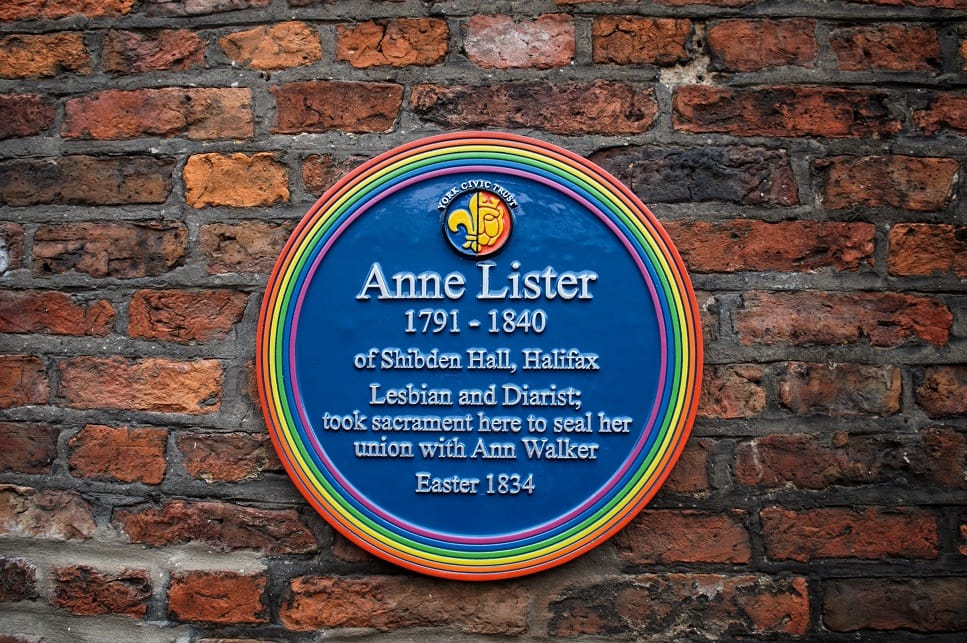
The Continuing Relevance of Anne Lister
The story of Anne Lister is as relevant today as it was in her own time. Her life challenges us to think critically about the constraints of societal norms and the ways in which individuals navigate these constraints to forge their own paths. Lister’s story is a testament to the power of resilience, the importance of intellectual and personal freedom, and the enduring quest for authenticity.
Lister’s diaries continue to be a source of inspiration and insight, offering a window into a world that was both remarkably different from and strikingly similar to our own. They remind us of the complexities of human identity and the ways in which individuals navigate the challenges and opportunities of their time to create lives of meaning and purpose.
Final Thoughts
Anne Lister’s life is a testament to the power of individuality and the pursuit of authenticity. Her achievements in business, her fearless embrace of her sexuality, and her intellectual and cultural pursuits position her as a pioneering figure in history. Lister’s diaries, with their candid and detailed accounts, offer an invaluable window into her world, illuminating the challenges and triumphs of a woman who dared to live on her own terms. Her legacy endures as a beacon of resilience, intellect, and the enduring quest for self-determination.






